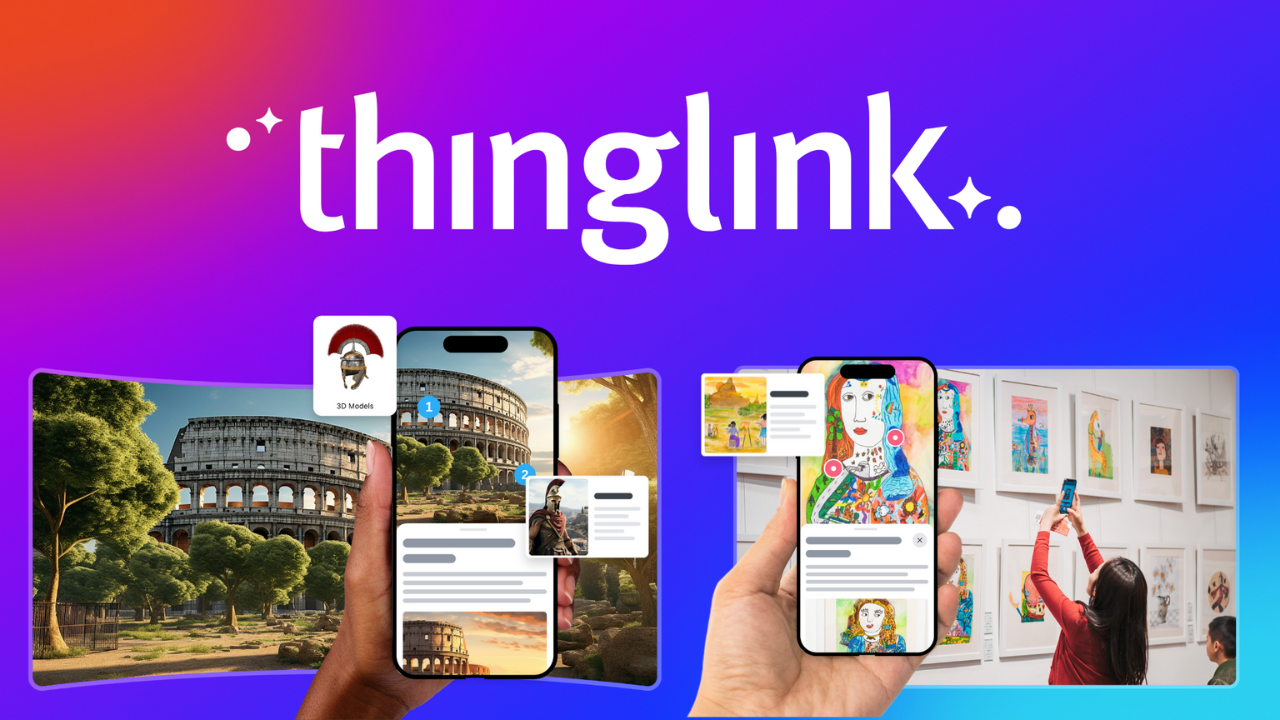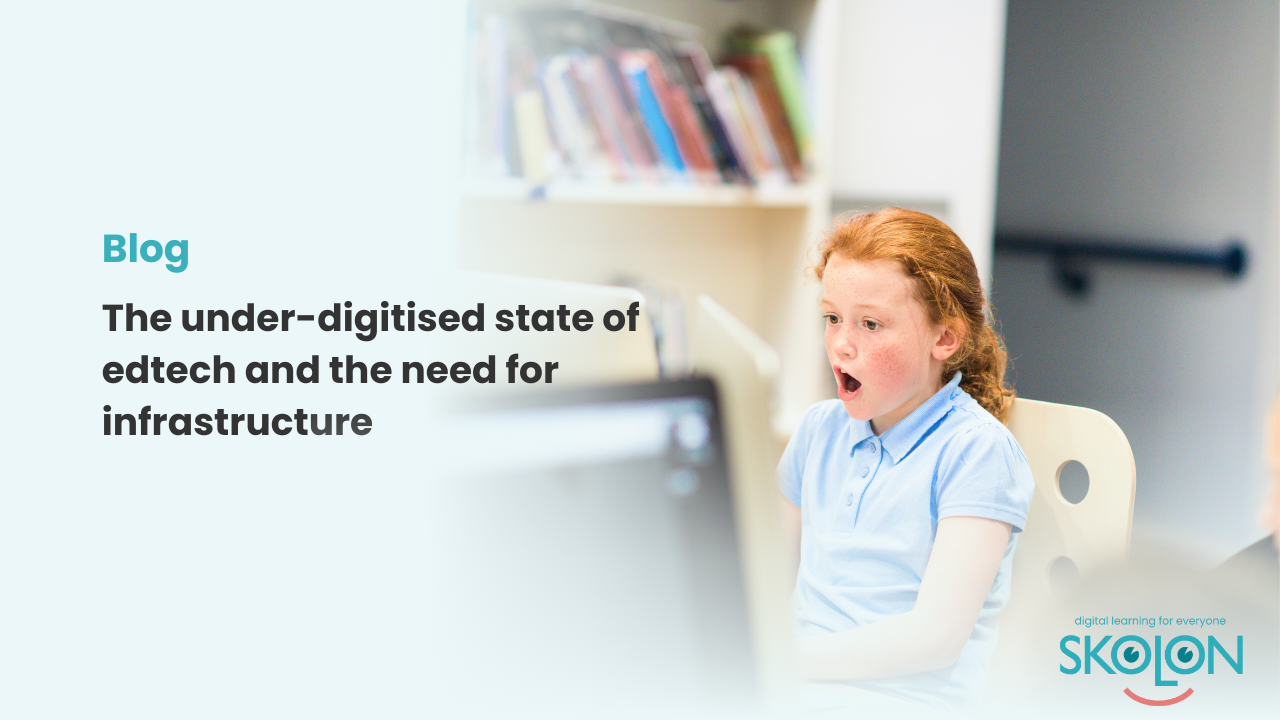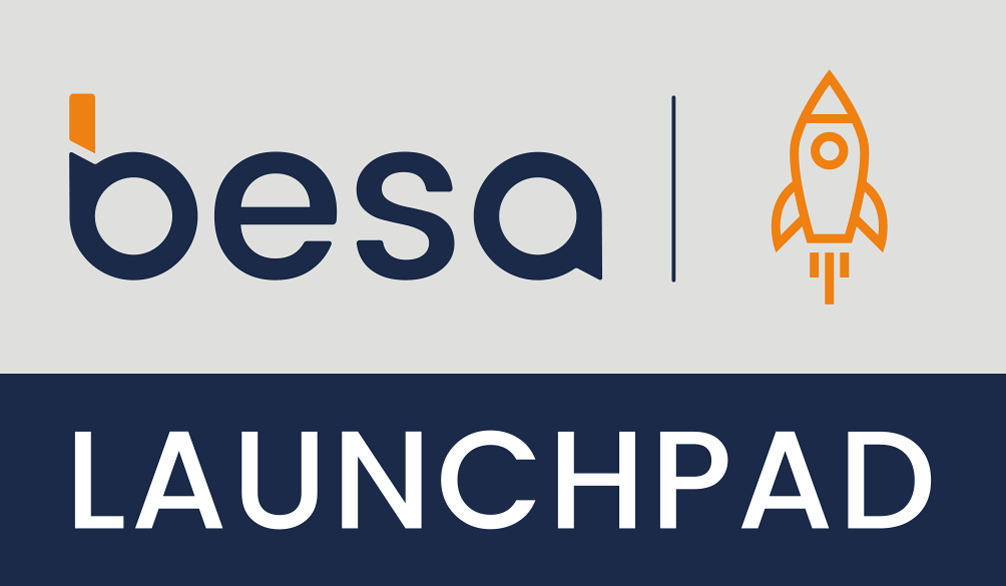Empowering student voices: How Skolon supports oracy in schools
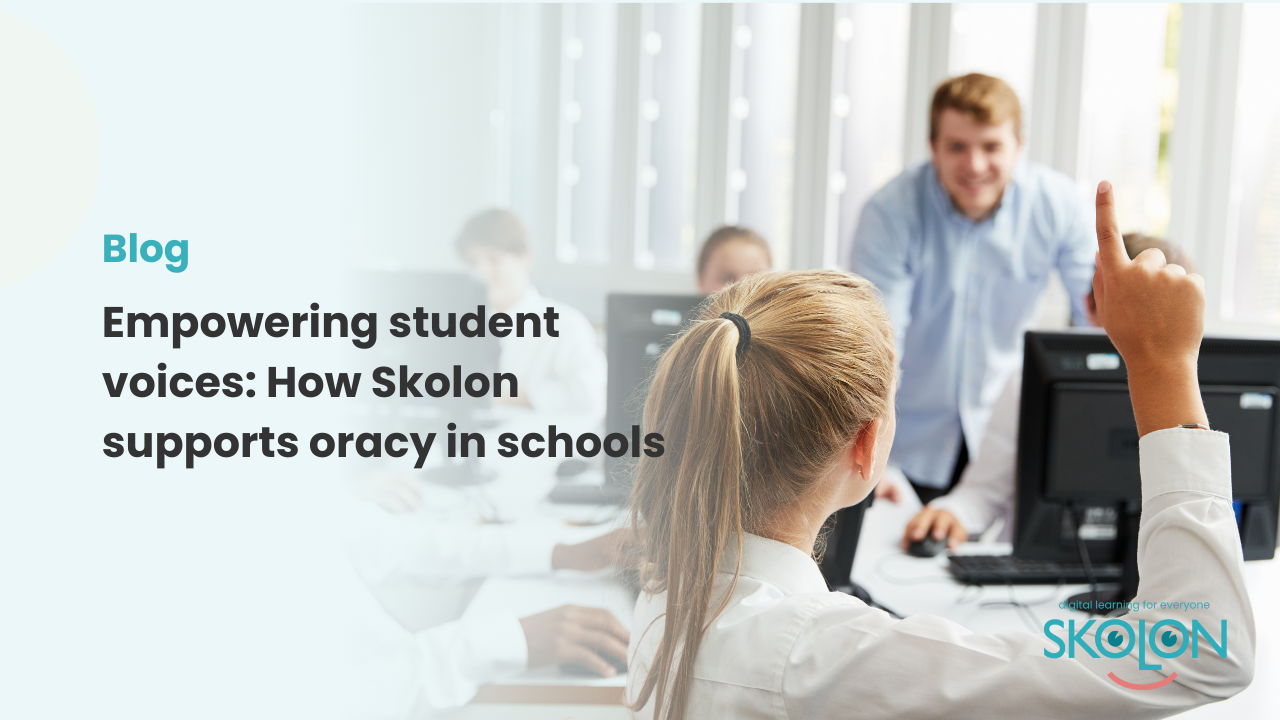

In a world dominated by influencers, cancel culture, and emoji-led conversation, it’s no surprise that many choose to stay silent. But as oracy skills decline in UK schools, is failing to act also failing the next generation’s ability to speak up?
Let’s talk about oracy
Oracy—the ability to express oneself clearly and engage in meaningful dialogue—is a fundamental skill in education. While the term is sometimes seen as non-inclusive, we recognise that oracy isn’t limited to spoken language.
Children who communicate using British Sign Language (BSL), written language, or alternative methods and devices should be fully included in oracy education. In fact, a truly inclusive approach should affirm and celebrate these diverse communication methods.
With that in mind, it’s important to note how technology plays a crucial role in enhancing oracy in modern classrooms. Digital tools offer interactive ways for students to practice speaking, receive feedback, and engage in discussions beyond the traditional classroom confines.
Strong speaking and listening skills can boost academic success, build confidence, and prepare pupils for future careers. Whether debating, presenting, or collaborating, effective communication is key.
From speech-to-text tools to video-based learning, technology creates new, accessible ways to develop these skills – read on to find out why you should pay attention to oracy and how Skolon can support your school in this mission.
Why oracy matters in education
More than just speaking and listening, oracy is essentially the foundation of pupil engagement, comprehension, and critical thinking – even during reception.
When pupils can articulate their ideas clearly, they engage deeper with learning, retain information better, and develop the confidence to question, debate, and explore new concepts.
Beyond the classroom, strong communication skills are just as essential for future careers as they are digital literacy. Although your pupils are years away from employment, this element of their future should not be overlooked. Employers consistently highlight the importance of articulate, confident speakers who can collaborate, problem-solve, and present ideas effectively. Oracy education helps prepare students for these real-world demands, equipping them with the skills to thrive in any profession.
Recognising its significance, Ofsted has placed increasing emphasis on spoken language in school inspections. Schools are now expected to embed oracy across the curriculum, ensuring students have the opportunities and support needed to develop these vital skills. To meet these expectations, schools need accessible and effective ways to embed oracy into daily teaching. This is where Skolon comes in.
How Skolon supports oracy in schools
Skolon makes it easy for schools to integrate oracy into everyday learning by providing seamless access to digital tools that enhance speaking and listening activities. With everything in one platform, teachers can quickly find and use resources that encourage verbal expression, collaboration, and interactive learning.
Collaborative tools – Skolon supports group discussions, peer feedback, and interactive presentations, helping students refine their communication skills in a structured and engaging way with tools such as Microsoft Teams, Padlet, and Book Creator that can be used to facilitate group discussions, collaborative projects, and interactive storytelling, helping students develop their speaking and listening skills in a dynamic and supportive environment.
Integration with oracy-friendly apps – Skolon connects seamlessly with tools like ClickView for video-based learning, Soundtrap which helps children to explore creative audio recording across all subjects, and other digital speaking resources, such as SpeakUp, which can encourage children to find their voice by vocalising and making sounds with shapes.
Accessibility features – Oracy should be inclusive for all learners. Skolon supports students with SEND by providing access to assistive technologies, such as speech-to-text tools and alternative communication devices, so every student can participate and develop their communication skills with tools such as Everway’s Read&Write (formerly Texthelp), including Skolon’s AI tool, Skolup, which can break text down phonetically, helping pupils practice pronunciation independently.
Enhancing Oracy with 2simple’s dedicated pack
As a key partner of Skolon, 2simple offers a comprehensive Oracy Pack, easily accessible within their Purple Mash platform.
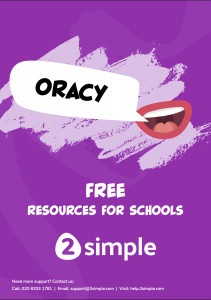
This pack provides primary school teachers with a wealth of practical, engaging activities designed to boost pupil confidence, vocabulary, and critical thinking in speaking and listening across KS1 and KS2.
From promoting emotional literacy with the “Emotions Activity” to fostering persuasive argumentation with the “Balloon Debate,” these classroom-ready resources support a whole-school approach to Oracy development, seamlessly integrating with the digital learning environment Skolon facilitates. To get your hands on 2simple’s free Oracy Pack, click here.
Practical classroom applications
The tools available via Skolon provide teachers with versatile ways to embed oracy into daily lessons. Whether leading a class debate, guiding storytelling exercises, supporting language learning, or helping to create digital presentations, Skolon ensures that all pupils have access to engaging resources that build confidence in spoken communication. Further examples of how apps can be used are:
Microsoft Teams can be used for class debates to help with structured discussions, Padlet for idea-sharing, and Kahoot! for pupil responses.
Creativity can be encouraged with Book Creator, where pupils can narrate their own stories, or present ideas visually and verbally.
Support with pronunciation practice can be facilitated with Skolup for phonetic breakdowns and Everway (formerly Texthelp) Read&Write for speech-to-text assistance.
Making oracy a priority in every classroom
Oracy is a vital skill that empowers pupils in their education and beyond. By integrating the right digital tools, schools can ensure that speaking and listening skills are consistently developed across subjects. Skolon makes this easy by offering a single platform where teachers can access, organise, and use a variety of apps designed to support oracy in the classroom.
Educators looking to enhance pupils’ speaking confidence and communication skills can explore Skolon’s platform to find the best tools for their needs using the button below.
Information
Share this story
Subscribe
Would you like our newest articles delivered to your inbox? Sign up now!
In a world dominated by influencers, cancel culture, and emoji-led conversation, it’s no surprise that many choose to stay silent. But as oracy skills decline in UK schools, is failing to act also failing the next generation’s ability to speak up?
Let’s talk about oracy
Oracy—the ability to express oneself clearly and engage in meaningful dialogue—is a fundamental skill in education. While the term is sometimes seen as non-inclusive, we recognise that oracy isn’t limited to spoken language.
Children who communicate using British Sign Language (BSL), written language, or alternative methods and devices should be fully included in oracy education. In fact, a truly inclusive approach should affirm and celebrate these diverse communication methods.
With that in mind, it’s important to note how technology plays a crucial role in enhancing oracy in modern classrooms. Digital tools offer interactive ways for students to practice speaking, receive feedback, and engage in discussions beyond the traditional classroom confines.
Strong speaking and listening skills can boost academic success, build confidence, and prepare pupils for future careers. Whether debating, presenting, or collaborating, effective communication is key.
From speech-to-text tools to video-based learning, technology creates new, accessible ways to develop these skills – read on to find out why you should pay attention to oracy and how Skolon can support your school in this mission.
Why oracy matters in education
More than just speaking and listening, oracy is essentially the foundation of pupil engagement, comprehension, and critical thinking – even during reception.
When pupils can articulate their ideas clearly, they engage deeper with learning, retain information better, and develop the confidence to question, debate, and explore new concepts.
Beyond the classroom, strong communication skills are just as essential for future careers as they are digital literacy. Although your pupils are years away from employment, this element of their future should not be overlooked. Employers consistently highlight the importance of articulate, confident speakers who can collaborate, problem-solve, and present ideas effectively. Oracy education helps prepare students for these real-world demands, equipping them with the skills to thrive in any profession.
Recognising its significance, Ofsted has placed increasing emphasis on spoken language in school inspections. Schools are now expected to embed oracy across the curriculum, ensuring students have the opportunities and support needed to develop these vital skills. To meet these expectations, schools need accessible and effective ways to embed oracy into daily teaching. This is where Skolon comes in.
How Skolon supports oracy in schools
Skolon makes it easy for schools to integrate oracy into everyday learning by providing seamless access to digital tools that enhance speaking and listening activities. With everything in one platform, teachers can quickly find and use resources that encourage verbal expression, collaboration, and interactive learning.
Collaborative tools – Skolon supports group discussions, peer feedback, and interactive presentations, helping students refine their communication skills in a structured and engaging way with tools such as Microsoft Teams, Padlet, and Book Creator that can be used to facilitate group discussions, collaborative projects, and interactive storytelling, helping students develop their speaking and listening skills in a dynamic and supportive environment.
Integration with oracy-friendly apps – Skolon connects seamlessly with tools like ClickView for video-based learning, Soundtrap which helps children to explore creative audio recording across all subjects, and other digital speaking resources, such as SpeakUp, which can encourage children to find their voice by vocalising and making sounds with shapes.
Accessibility features – Oracy should be inclusive for all learners. Skolon supports students with SEND by providing access to assistive technologies, such as speech-to-text tools and alternative communication devices, so every student can participate and develop their communication skills with tools such as Everway’s Read&Write (formerly Texthelp), including Skolon’s AI tool, Skolup, which can break text down phonetically, helping pupils practice pronunciation independently.
Enhancing Oracy with 2simple’s dedicated pack
As a key partner of Skolon, 2simple offers a comprehensive Oracy Pack, easily accessible within their Purple Mash platform.

This pack provides primary school teachers with a wealth of practical, engaging activities designed to boost pupil confidence, vocabulary, and critical thinking in speaking and listening across KS1 and KS2.
From promoting emotional literacy with the “Emotions Activity” to fostering persuasive argumentation with the “Balloon Debate,” these classroom-ready resources support a whole-school approach to Oracy development, seamlessly integrating with the digital learning environment Skolon facilitates. To get your hands on 2simple’s free Oracy Pack, click here.
Practical classroom applications
The tools available via Skolon provide teachers with versatile ways to embed oracy into daily lessons. Whether leading a class debate, guiding storytelling exercises, supporting language learning, or helping to create digital presentations, Skolon ensures that all pupils have access to engaging resources that build confidence in spoken communication. Further examples of how apps can be used are:
Microsoft Teams can be used for class debates to help with structured discussions, Padlet for idea-sharing, and Kahoot! for pupil responses.
Creativity can be encouraged with Book Creator, where pupils can narrate their own stories, or present ideas visually and verbally.
Support with pronunciation practice can be facilitated with Skolup for phonetic breakdowns and Everway (formerly Texthelp) Read&Write for speech-to-text assistance.
Making oracy a priority in every classroom
Oracy is a vital skill that empowers pupils in their education and beyond. By integrating the right digital tools, schools can ensure that speaking and listening skills are consistently developed across subjects. Skolon makes this easy by offering a single platform where teachers can access, organise, and use a variety of apps designed to support oracy in the classroom.
Educators looking to enhance pupils’ speaking confidence and communication skills can explore Skolon’s platform to find the best tools for their needs using the button below.
Share this story
Subscribe
Would you like our newest articles delivered to your inbox? Sign up now!

